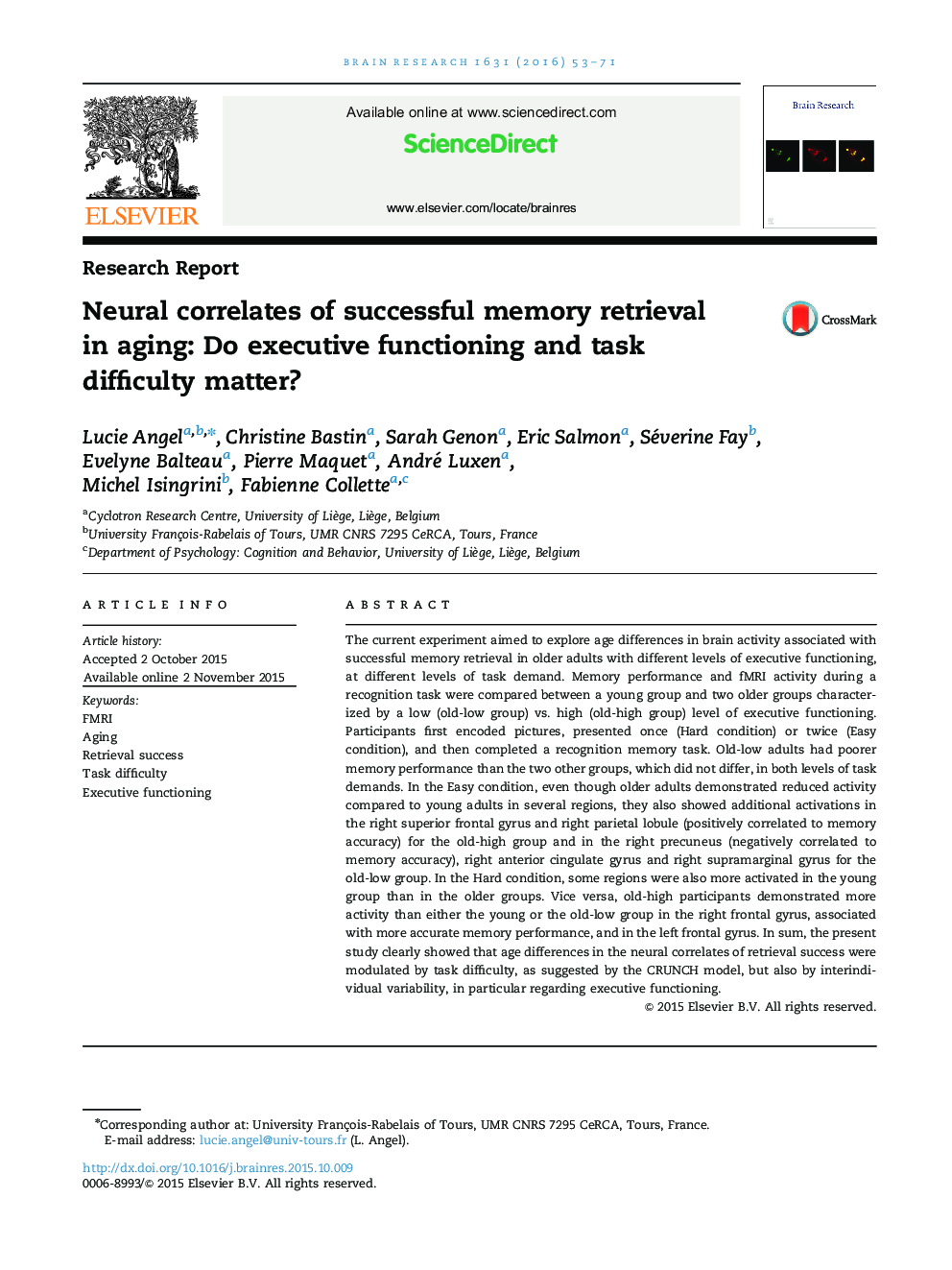| Article ID | Journal | Published Year | Pages | File Type |
|---|---|---|---|---|
| 6262614 | Brain Research | 2016 | 19 Pages |
â¢Age differences in brain activity associated with memory retrieval were explored.â¢Older adults exhibited both reduced and increased activations compared to young.â¢These age-related differences depend on task difficulty.â¢They were also modulated by older adults׳ level of executive functioning.
The current experiment aimed to explore age differences in brain activity associated with successful memory retrieval in older adults with different levels of executive functioning, at different levels of task demand. Memory performance and fMRI activity during a recognition task were compared between a young group and two older groups characterized by a low (old-low group) vs. high (old-high group) level of executive functioning. Participants first encoded pictures, presented once (Hard condition) or twice (Easy condition), and then completed a recognition memory task. Old-low adults had poorer memory performance than the two other groups, which did not differ, in both levels of task demands. In the Easy condition, even though older adults demonstrated reduced activity compared to young adults in several regions, they also showed additional activations in the right superior frontal gyrus and right parietal lobule (positively correlated to memory accuracy) for the old-high group and in the right precuneus (negatively correlated to memory accuracy), right anterior cingulate gyrus and right supramarginal gyrus for the old-low group. In the Hard condition, some regions were also more activated in the young group than in the older groups. Vice versa, old-high participants demonstrated more activity than either the young or the old-low group in the right frontal gyrus, associated with more accurate memory performance, and in the left frontal gyrus. In sum, the present study clearly showed that age differences in the neural correlates of retrieval success were modulated by task difficulty, as suggested by the CRUNCH model, but also by interindividual variability, in particular regarding executive functioning.
